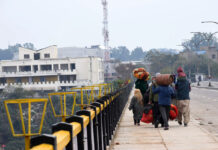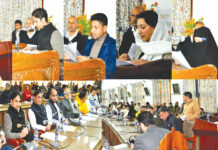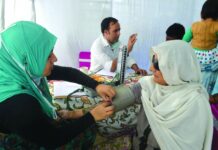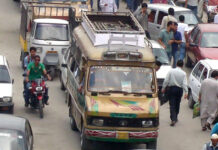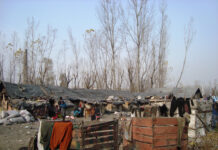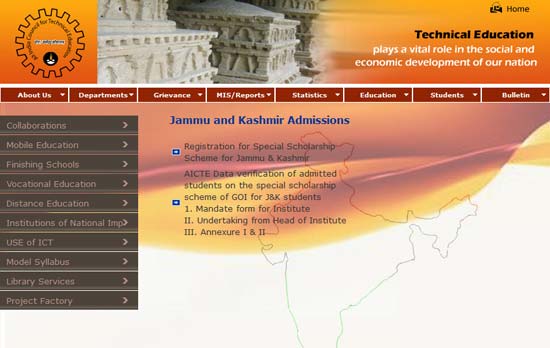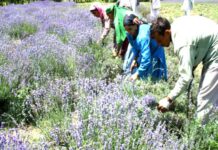The separatists have challenged the clergy’s decision to banish four pastors from the state over allegations of forced conversions saying it is not the solution to the problem. Tasavur Mushtaq reports
A senior separatist leader and the “Sharia court” in Kashmir are at loggerheads over the latter’s diktats against some Christian pastors on the “issue of forcible conversions”.
 The “Sharia court” recently came under fire from the senior separatist leader Syed Ali Shah Geelani, for banning the entry of four pastors CM Khanna, Jim Borst, Gayour Massi and Chandre Kanta into the state. The four were found guilty, according to clerics associated with the “Sharia court”, of luring Muslim youth to Christianity.
The “Sharia court” recently came under fire from the senior separatist leader Syed Ali Shah Geelani, for banning the entry of four pastors CM Khanna, Jim Borst, Gayour Massi and Chandre Kanta into the state. The four were found guilty, according to clerics associated with the “Sharia court”, of luring Muslim youth to Christianity.
“During the trial the four were found guilty of exploiting the financial conditions of the youth. The final verdict that they cannot enter the state,” the “court” said.
The controversy sprang up in 2011 autumn when a youtube video showed pastor Khanna baptizing a group of youth in Srinagar. While the pastor said the conversions were voluntary, the clergy accused the pastors of using money to lure people. The government acted swiftly and arrested the pastor. By that time, the clergy got an ‘insider’ to brief them about how the conversions happen. Zubair Ahmad, the boy who shot the video and posted it on the web is Muslim clergy’s new poster boy who is now being “reverted” to Islam.
Ever since the conversion issue surfaced in the Valley, various Muslim organisations have been demanding strict action against the missionaries allegedly involved in conversions, the separatists watched from a distance.
However, briefly after the pronouncement Geelani said it was the duty of every Muslim to protect the members of the minority community and that asking a few persons to leave the state was no solution to the controversy.
“We are not with the decision taken by the Sharia Court to banish a few persons from the state for their alleged role in conversions,” he was quoted as saying in a statement from Delhi, “Banishing someone is no solution. As Muslims it is our responsibility to ensure that we reach-out to our youth and create awareness about Islam.”
He dispelled the notion that Christians were unsafe in the Valley.
“They are a part and parcel of our society and it is our duty to protect them. No Kashmiri can ignore the contribution of schools like Burn Hall, Biscoe and (Presentation) Convent in the education system of the Valley. Unfortunately we have not been able to build educational institutions like these despite having all the available resources,” Geelani said.
The grand mufti, Mufti Bashir-u-Din, whom Geelani previously dubbed as a government sponsored clergyman said the court’s decision was final.
“We stand by our decision. We have not made any ruling against Christianity or Christians. We have only passed a judgment against four non-state subjects, who were involved in the immoral activity of forced conversion. Geelani may not be aware of all the facts,” he said in response to the veteran separatist leader.
After, remaining in detention for 13 days over accusations of forcibly proselytizing Muslim youth, C M Khanna, retired as Pastor of a Srinagar church last week. Police have ordered him not to leave the state till they file charges against him in the court of law.
“I do not know what I should do. I am putting up in Jammu till the police files the charge-sheet,” Khanna told a Delhi-based daily. “The courts are opening (after winter vacation) and my lawyer will appear before it. I will fight the case.”
The “Sharia Court” pronouncement has created apprehensions among the Christians in the state. While Christian leaders fear that they are being spied upon, police is learnt to have arrested five Muslims recently who allegedly were baptized on a single day.
Sonawar, an upwardly mobile area in Srinagar city that houses most of the microscopic Christian community, and their orphanages, is calm. Everything seems normal, however, they are avoiding talking to strangers.
 Christians from outside working in Kashmir say they are being looked upon with suspicion. A foreigner married to a local Muslim, runs a home for the destitute.
Christians from outside working in Kashmir say they are being looked upon with suspicion. A foreigner married to a local Muslim, runs a home for the destitute.
Last week while shopping, she overheard people saying the “lady will ultimately convert the kids to her faith,” a reporter who knows the woman said. “There seems to be a sense of unease in interactions.”
Conversions are not new in J&K. Though most of the conversions have taken place in caste-ridden Jammu, off late, Kashmir is following suit. The activities of evangelical groups have been making news from Kashmir intermittently.
In 2005, police packed off a number of such groups who allegedly were offering support to the earthquake affected population in lieu of conversions. In November 2006, when suspected militants shot dead an engineer Bashir Ahmad Tantray of Mamoosa village in north Kashmir, a practicing Roman Catholic since 1995, it made news the world over.
The controversy triggered by the Youtube video is the latest in the series. In fact a delegation of the National Commission on Minorities visited Kashmir and met government ministers and officials in December after some Christian leaders made allegation of “persecution”.
Though Christians are small in number in the valley, the missionary schools have earned high repute.
Some of the noteworthy students emerging from these schools are Dr Haseeb Drabu, Omar Abdullah, Mirwaiz Umar, Sajjad Gani Lone and some of the pioneers of the armed militancy like top JKLF commander Ashfaq Majid Wani.


